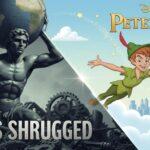
In my previous examination of Pandora’s Jar, I dismantled the deceptive comfort of hope, exposing it as a passive tether that binds us to the reactive cycle of afterthought. To break free from this paralysis, one must adopt the mantle of Prometheus—the bringer of forethought. However, true forethought is not merely the intellectual exercise of predicting outcomes; it is an act of rigorous, spiritual, and cognitive alignment with reality, or the Logos. […] Read more »













